News 2018
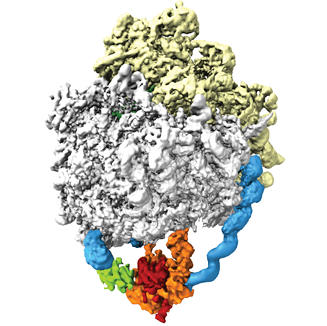
Hardly built, already changed: Proteins are essential for every cell. LMU structural biologists show for the first time how the fresh amino acid chains are chemically modified on the ribosome before they fold into the finished protein.
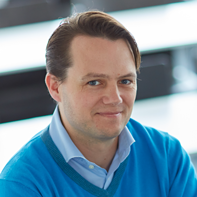
The immunologist Professor Veit Hornung of the LMU Gene Center has been awarded the Liliane Bettencourt Prize for Life Sciences for his research on mechanisms of the innate immune system to recognize "alien" molecular patterns.

Ten LMU faculty members are among the authors listed in “Highly Cited Researchers 2018”. The ranking is based on an analysis of the citation history of scholarly publications, and covers the Natural, Social and Medical Sciences.
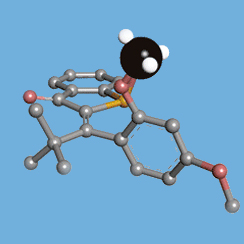
LMU chemists have developed the first molecular motor that can be powered by light alone. Its operation is therefore essentially independent of the temperature.
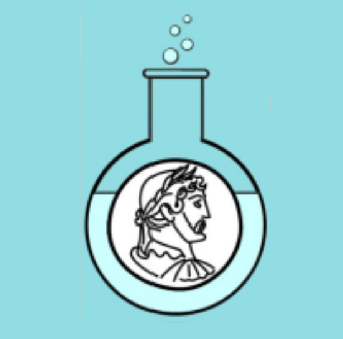
Festive event on Friday, 7.12.2018, at 15:15
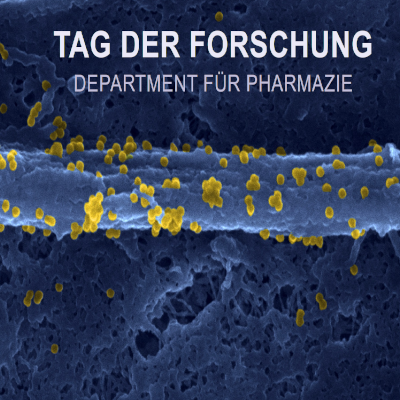
On November 30, 2018 there will be the DAY OF RESEARCH AT THE DEPARTMENT OF PHARMACY.
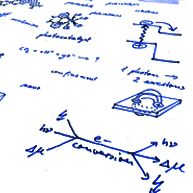
Photocells, catalysis, batteries? What is the most efficient and sustainable way to capture and convert energy into useful forms? The new Cluster, which will will receive funding from 2019 on, will study the processes that take place at the interfaces between different materials.
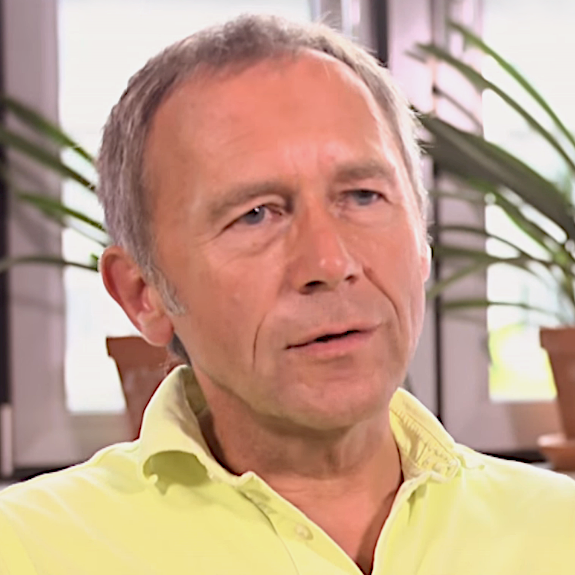
For his outstanding achievements in the field of inorganic chemistry, the Gesellschaft Deutscher Chemiker (GDCh) honors Professor Wolfgang Schnick with the Liebig commemorative coin.
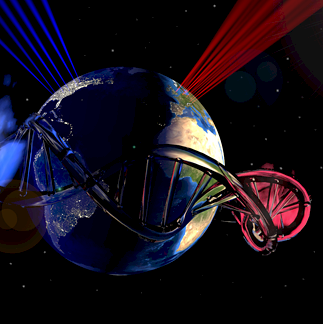
Researchers establish a benchmark for the accurate determination of internal dimensions within individual molecules.
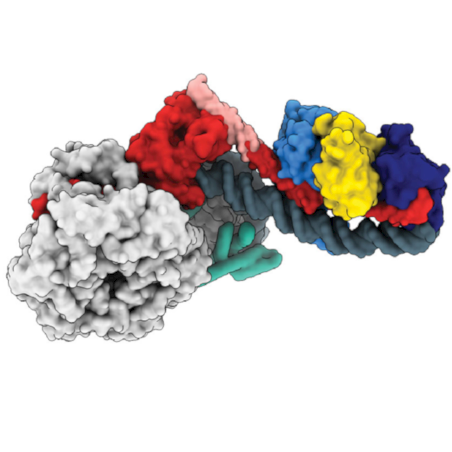
The DNA in the cell nucleus is highly condensed, and genes must be rendered accessible before they can be activated. An LMU team has now described the action of a protein complex that serves as a yardstick to measure lengths of exposed DNA.
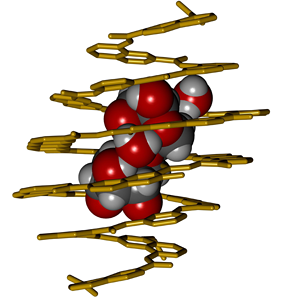
LMU chemists have designed and synthesized a helical molecule that specifically recognizes and binds to a disaccharide consisting of two five-carbon sugar units.
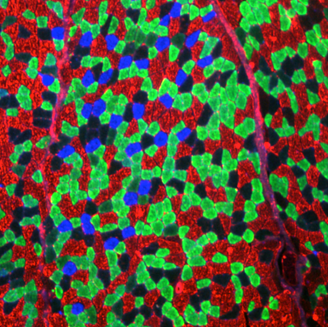
How do muscle cells prepare for the particular metabolic challenges of the day? A new study has uncovered a metabolic network which is, contrary to expectations, not controlled by the brain but rather by the circadian clock of muscle cells.
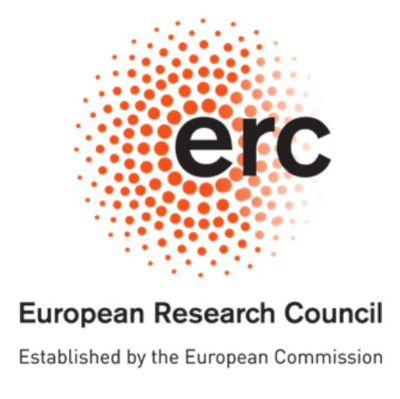
In its latest funding round, the European Research Council (ERC) has awarded Starting Grants to ten junior researchers.
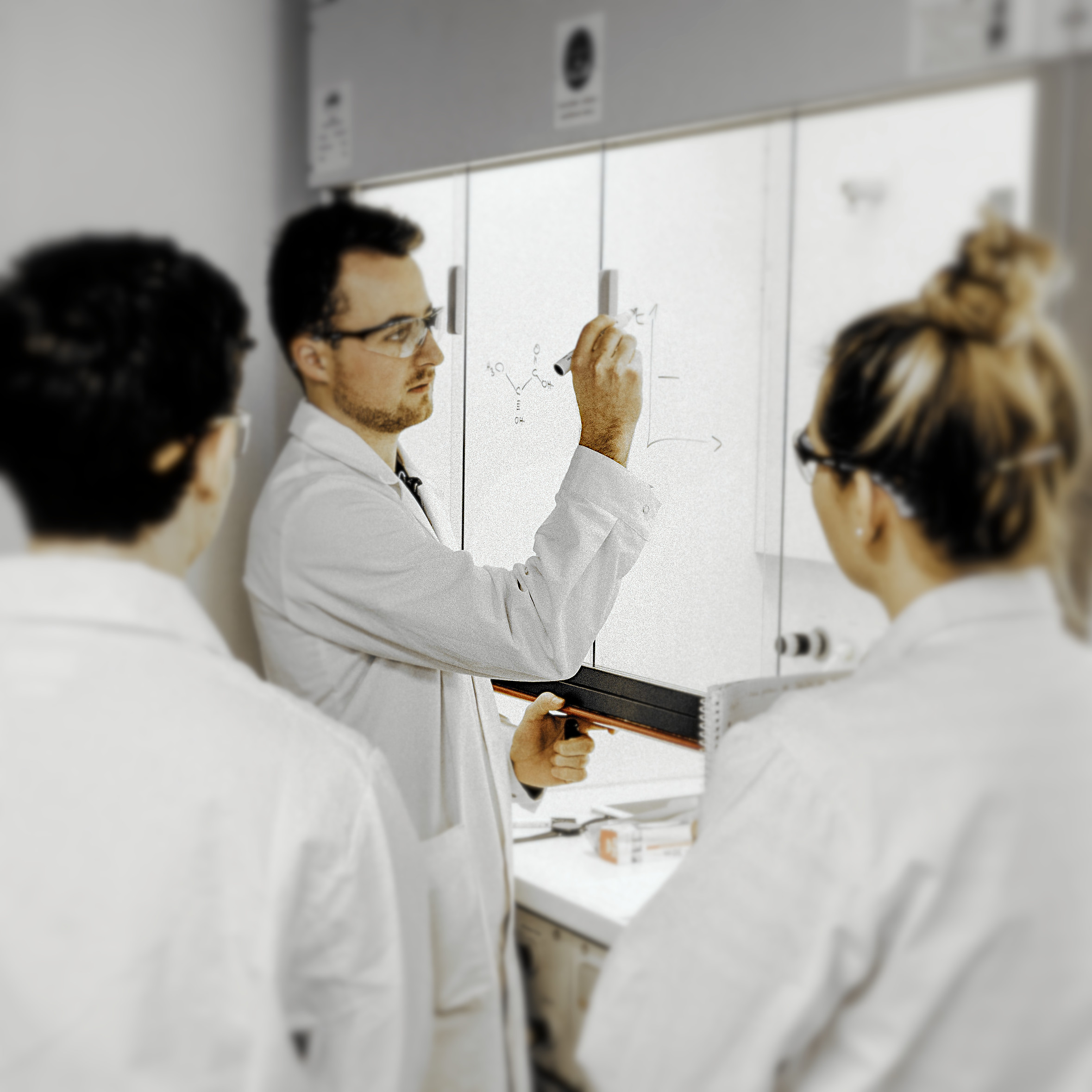
In coming winter semester, for the first time a theoretical and practical preliminary course in chemistry didactics will be held from 19.-28. September 2018 for prospective students of chemistry.
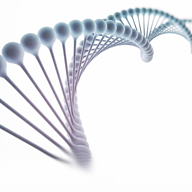
The group of Prof. Thomas Carell from the Department of Chemistry of the LMU has won a million-dollar grant from the Volkswagen Foundation.
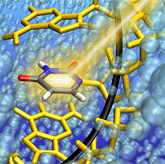
Researchers led by Regina de Vivie-Riedle, a professor of theoretical chemistry at LMU Munich, have found indications for a base-independent mechanism that can decrease the photostability of the RNA base uracil.
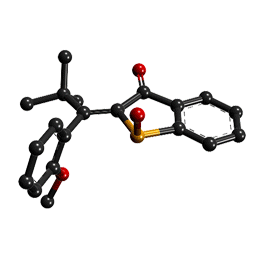
The hula twist is no longer an unproven postulate: LMU chemists have now directly shown that a light-sensitive molecule can perform this complex photoreaction. This has inter alia implications for the development of novel molecular machines.
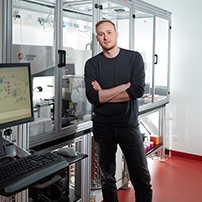
Julian Stingele, Professor at the LMU Gene Center, has been awarded the Alfried Krupp Prize for Young University Teachers.
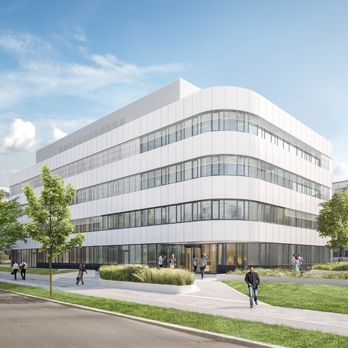
The LMU is adding a new central element to its high-tech campus at Großhadern. By 2020, a new building is to be built where researchers will investigate important mechanisms of genetic control.
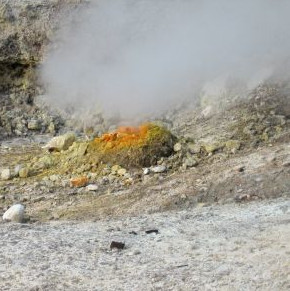
Rare earth elements (REEs) are an indispensable component of the digital technologies that are now an integral part of our everyday life. Yet their biological role has been discovered only recently. A few years ago it became apparent that these metals are essential elements for methano- and methylotrophic bacteria. One representative is the bacterium Methylacidiphilum fumariolicum SolV, which was found in a volcanic mudpot near Naples, Italy, and is known to be strictly dependent on REEs such as lanthanum and cerium for its growth.
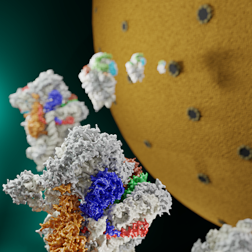
Ribosomes are the cell’s protein factories. LMU researchers have now structurally characterized late stages in the assembly of the human small ribosomal subunit, yielding detailed insights into their maturation principles.
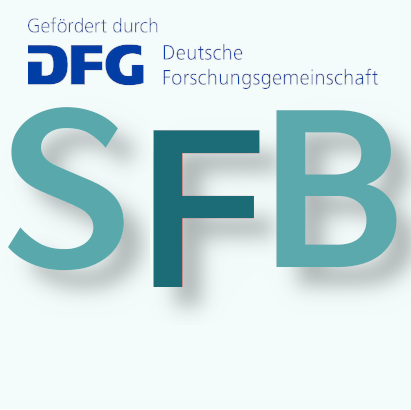
Mechanisms of epigenetics, the evolution of life and the question of how the immune system distinguishes the body’s own from foreign DNA: The Deutsche Forschungsgemeinschaft (DFG) will fund three new large-scale projects.
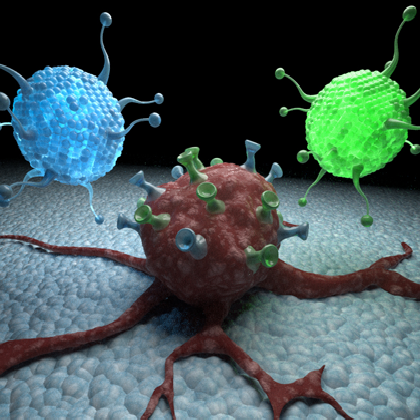
Globally, cancer is the second leading cause of death, also because the efficiency of chemotherapeutics is inadequate due to poor delivery to the tumor. Prof. Olivia Merkel and her team develop targeted nanocarrier systems to increase the delivery rates of therapeutic formulations and their specific uptake into the target cells.
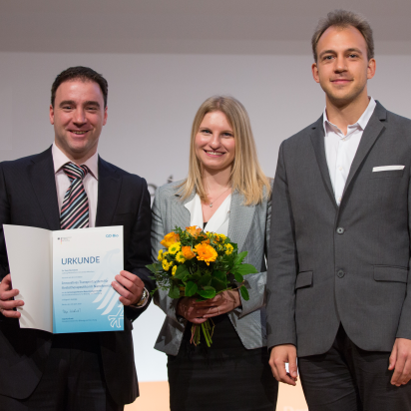
The BMBF funding initiative GO-Bio supports life-science researchers who are looking to turn their innovative ideas into successful businesses and products. One of the 8 winner-teams in the 8th selection round is coming from the LMU Department of Pharmacy.
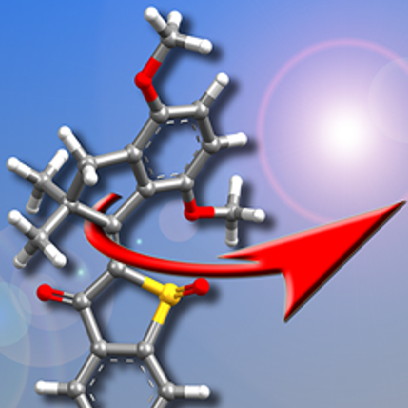
LMU researchers analyze the rotation of a molecular motor using ultrafast spectroscopy and quantum mechanical calculations.
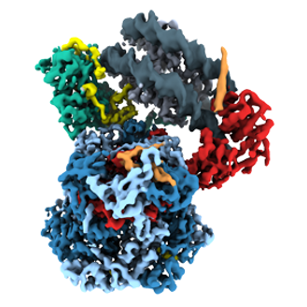
DNA is tightly packed into the nucleus of a cell. Nevertheless, the cellular machinery needs to constantly access the genomic information. An LMU team now reveals the inner workings of a molecular motor made of proteins which packs and unpacks DNA.
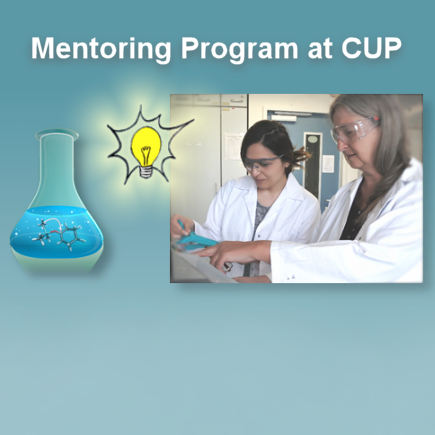
The Faculty of Chemistry and Pharmacy has developed a new format for its mentoring program.
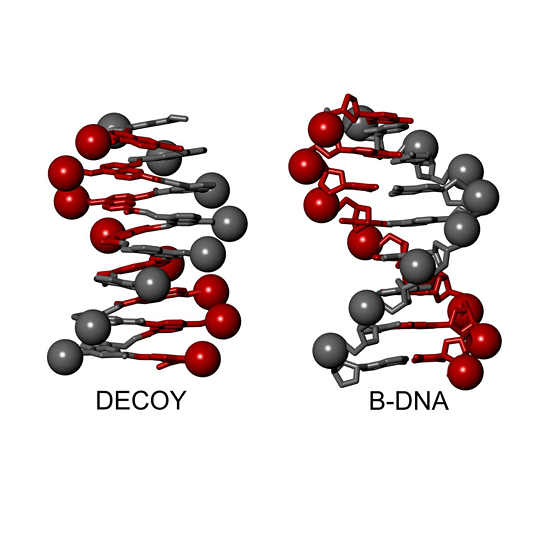
Not only can synthetic molecules mimic the structures of their biological models, they can also take on their functions and may even successfully compete with them, as an artificial DNA sequence designed by LMU chemist Ivan Huc now shows.
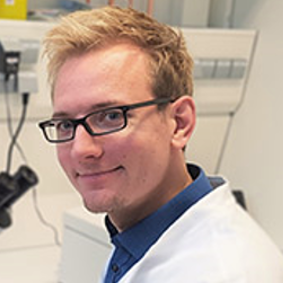
Dr. Lucas Jae, independent group leader at the LMU Gene Center since 2016, has received Germany’s most important prize for junior scientists today!
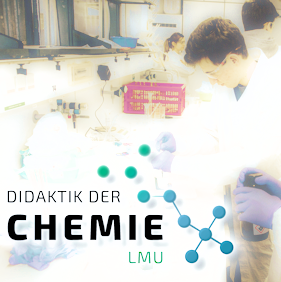
Try out current research yourself: the school's lab has been successfully launched
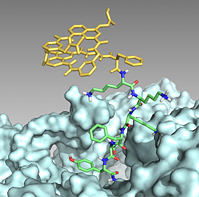
Chemist Ivan Huc creates artificial folded molecular architectures called ‘foldamers’.
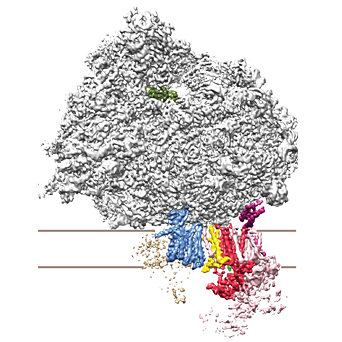
LMU researchers have visualized the complex interplay between protein synthesis, transport and modification.
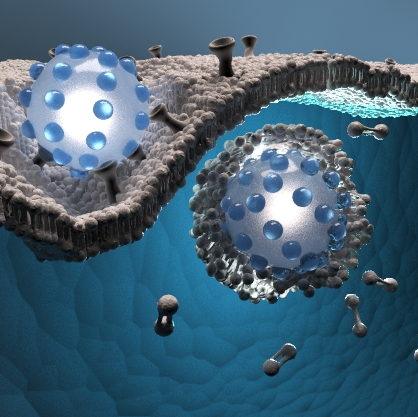
From April 6th to 8th, 30 young and established scientists from China, Germany and neighboring countries will meet at LMU to present their research in the field of nanopharmaceuticals.
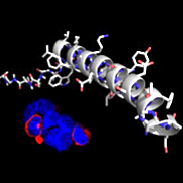
LMU researchers have developed a method that enables cell-surface receptors to be switched on and off at will. The technique promises to provide new insights into receptor functions and their effects on intracellular signaling pathways.
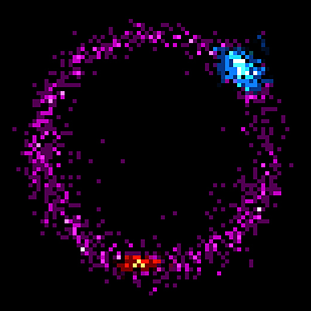
Scientists at LMU and TUM have developed a novel electric propulsion technology for nanorobots. It allows molecular machines to move a hundred thousand times faster than with the biochemical processes used to date.

RNA was probably the first informational molecule. Now LMU chemists have demonstrated that alternation of wet and dry conditions could have sufficed to drive the prebiotic synthesis of the RNA nucleosides found in all domains of life.
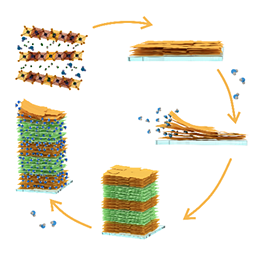
Photonic crystals comprising very few layers of 2D-nanosheets and nanoparticles or two alternating nanosheet materials represent a new generation of ultrathin humidity sensors. NIM chemist Prof Dr Bettina Lotsch and her team have developed functional colorimetric sensing materials with increased sensitivity, better optical quality and reduced production cost.

Highlights sind die große Chemievorlesung sowie Führungen, Experimente und Vorträge für Schüler auf dem gesamten Campus. Die Studiengangskoordinatoren stellen die Studiengänge der Fakultät vor.